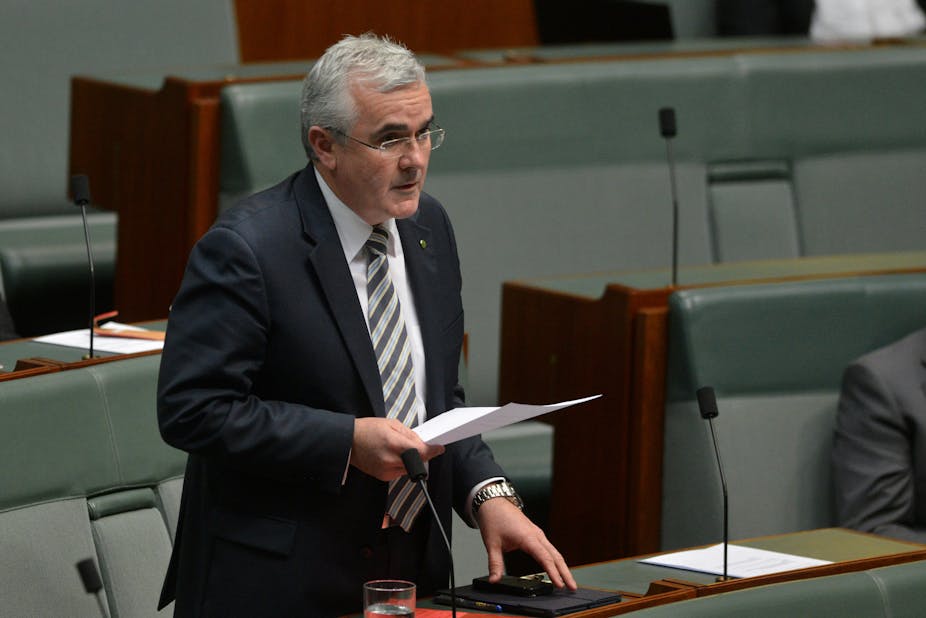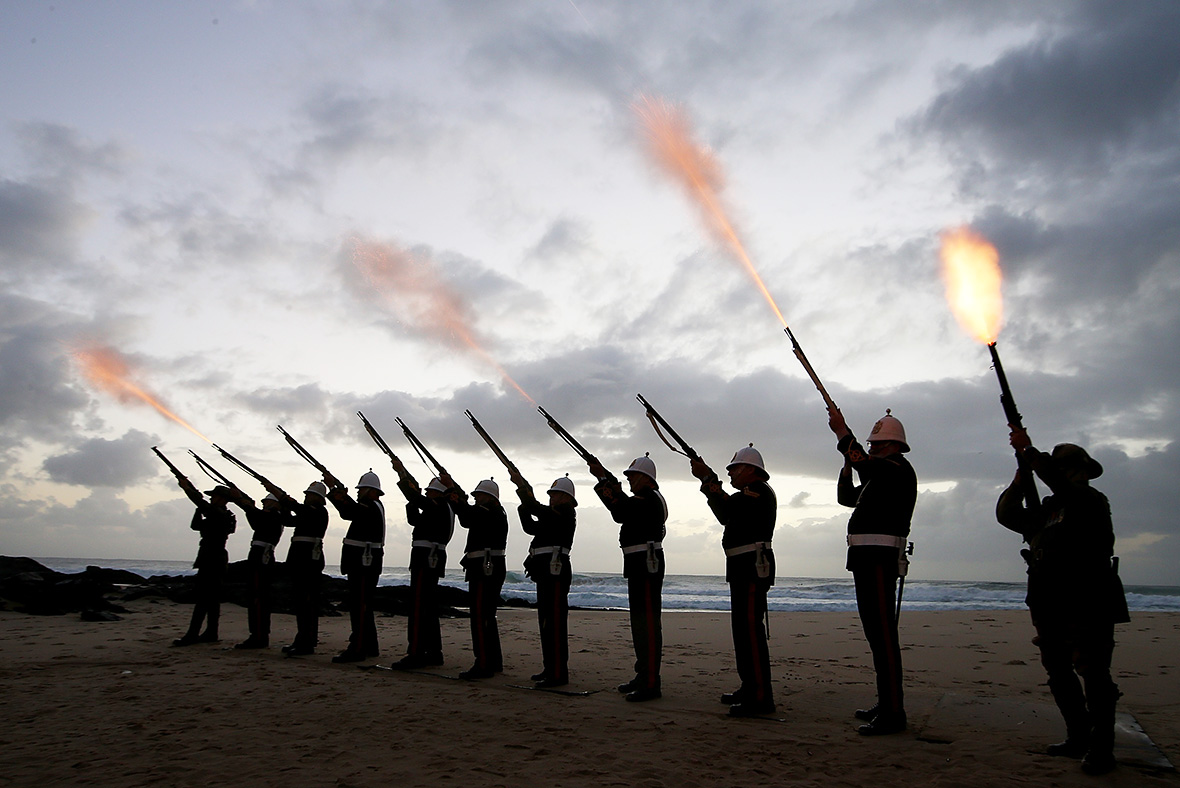Albanese Government Announces War Powers Inquiry
Australians for War Powers Reform
(October 1, 2022) — Australians for War Powers Reform (AWPR) has warmly welcomed the news today that the Albanese government will hold a parliamentary inquiry into how Australia makes decisions to send service personnel into international armed conflict.
“We believe the current system whereby the Prime Minister and the executive can make this crucial decision without reference to Parliament is outdated and needs urgent reform,” said Dr. Alison Broinowski AM, President of AWPR.
“At present the Prime Minister can make the decision, often without even consulting his or her own cabinet. This means the most serious decision of all can be a “captain’s call”, left up to just one person. Surely in 2022, with threats of war mounting, that is no longer acceptable.”
“We will make a constructive submission to the inquiry and we hope it will receive views from the wider community on the matter.
We applaud the government for tackling this issue and being open to investigate genuine reform”.
“The results of this year’s election show that the community wants greater transparency and accountability in decision making, as well as measures to deal with global warming. Both are connected with military operations.
We need to move away from top down, behind closed doors, decision making, particularly in the way Australia joins overseas wars.”
https://warpowersreform.org.au/awpr-submission-to-the-defence-strategic-review/
AWPR Submission to the Defence Strategic Review

Andrew Wilkie argues for parliamentary authorisation before Australia goes to war.
Introduction
(September 30, 2022) — Australians for War Powers Reform (AWPR) is a community organisation whose mission is to ‘ensure that decisions for Australian troops to go to war, barring emergencies, are made only after full debate and vote by Federal Parliament.’ More information on AWPR can be found at Australians for War Powers Reform (2022).
AWPR welcomes the opportunity to provide a submission to the Defence Strategic Review (the Review). The focus of this submission is about the decision-making processes that could result in Australia becoming involved in a future conflict.
About the Author
I served in the Australian Army from 1995 to 2019 in the Royal Australian Corps of Signals. I deployed on three operations and was awarded a Silver Commendation as the Executive Officer of the 1st Signal Regiment. I am a member of the Executive Committee of AWPR.
Background
Whilst the Terms of Reference are vague with respect to the specifics of the ‘strategic changes’ facing Australia that have triggered the Review, we can only conclude from the public discourse that the so-called rise of China and the challenges that this presents to the United States is the major, if not primary, strategic change. For the purposes of this submission, AWPR has assumed that these are the primary strategic changes facing Australia.
War Powers
The decision to go to war is one of the most serious choices any government will face. The cost to the nation can be enormous, often with unknown consequences – especially in the case of a resort to the use of lethal force.
Currently, the decision to send troops into overseas conflict is made secretly by Executive Government and potentially by the Prime Minister alone, as occurred when Prime Minister Howard committed Australia to the Iraq War in 2003. This practice appears rooted in an undemocratic convention permitting the Government to decide in secret, and without reference to the Parliament, to deploy troops to conflict overseas.
The process of deciding the outcome is a carefully calibrated sequence of serial steps starting with threat assessments, progressing through diplomatic responses, military preparedness and ending with the moment of critical choice. We argue that, at the very least, the Parliament must be involved. How elected parliamentarians ensure they maintain full situation awareness – including the ambition of their respective constituency – is also a matter for parliament to resolve.
AWPR’s position is that Australia needs a system where parliament debates and resolves whether troops are sent into overseas conflict. As is the case for all other matters of national importance, only transparent parliamentary scrutiny and critical appraisal of the alternatives leading to resolution ensure robust decisions.
Currently s61 of the Constitution empowers the Executive Government to commit Australia to conflict without reference to the Parliament. This can be changed by amending the Defence Act 1903.
Critical Information Requirements
This submission addresses the first and third Critical Information Requirements detailed in the Terms of Reference with respect to the decision-making processes that could see Australia being drawn into a war with China as an adversary.
Decision-making with Respect to China Conflict
A major concern that AWPR has with regards to Australia becoming involved in a potential conflict with China is that the decision-making centres that would lead to our involvement would not reside with the Australian Government but rather with the Chinese or United States Government’s.
This could occur by several scenarios including:
- In the event of heightened tension the Chinese military could, as a warning to the United States, engage Australian military aircraft or naval vessels operating in the contested littoral approaches to China. This would be a significant escalation by China; however from their perspective it offers the ability to raise the ante vis-a-vis the United States without directly engaging the United States military.
- In the event of the Chinese launching military operations to reclaim sovereignty over Taiwan, the United States may respond militarily. Australia may become involved in the conflict by ‘default’ due to the basing of United States military capabilities on Australian territory or embarked on Australian warships, aircraft, space-based platforms or drones. Regardless of the policy position of the Australian Government of the day, China may view Australia’s facilitation of United States military operations as being a party to the conflict and thus targeted (e.g. long range ballistic missile strikes on Australian soil).
- The United States may initiate a military conflict with China in a pre-emptive attempt to weaken China, drawing Australia into the conflict as previously described.
Furthermore, it is highly likely that in the event of a conflict between the United States and China, the United States would place enormous pressure on the Australian Government to become a party to the conflict regardless of Australia’s national interest.
This type of pressure has been amply demonstrated by the current Russia-Ukraine conflict where pressure placed on European countries such as Germany to sanction Russia is leading to a situation where European economies are facing severe and long-term economic, social and political consequences.
A further complicating factor is AUKUS. The detailed terms of the AUKUS arrangement are opaque. The Parliament and the Australian people do not know what obligations AUKUS may commit us too and the implications of those obligations to Australia’s involvement in a conflict.
AWPR is of the view that the current situation whereby Australia could become involved in a conflict with China without the ability to exercise sovereign decision-making power with respect to this conflict is not in Australia’s interest. It poses the gravest of risks to Australia’s future security and prosperity that would have major, potentially catastrophic, impacts on Australia over a multi-generational timeframe.
Safeguards
Based on the preceding analysis it is quite clear there is a requirement for safeguards to be established that would prevent Australia from becoming involved in a conflict with our largest trading partner China either by default or under pressure from the United States Government and/or other allied Governments that is against Australia’s interest.
The aim of such safeguards should be to ensure that if/when the Australian Government is faced with a decision on committing to an overseas conflict, that this decision is a sovereign decision made in Australia’s national interest and not by ‘default’ or under pressure from another country.
The first proposed safeguard is a parliamentary inquiry into AUKUS. The aim of this inquiry should be to ensure that parliamentary scrutiny is applied to AUKUS such that a considered decision on its merits or otherwise can be made by the Parliament in the national interest.
The second safeguard is a review of the status of forces agreements with the United States. This review should focus on the ability of the Australian Government to restrict the operation of United States military assets (or any other foreign military) on Australian territory in the event of a conflict with China (or any other country). The aim of such a review is to ensure that Australia does not become drawn into a conflict by ‘default’ due to the basing of foreign military forces on Australian territory.
The third, and perhaps the most important safeguard is for the implementation of war powers legislation such that it requires a Parliamentary resolution before Australia becomes involved in an overseas military conflict. The implementation of such legislation would address several of the issues raised in this submission:
- It would highlight to other countries that Australia asserts its sovereignty and is not a party to a conflict unless the Parliament has so resolved it.
- It would render unlikely a foreign power presuming Australia would commit to entering a conflict – independently or in partnership with others without prior parliamentary resolution.
- By expunging the power of the Executive Government to alone decide on whether to participate in a conflict, would ensure Australia’s interests are more comprehensively considered through parliamentary process.
Other Considerations
Polling commissioned by AWPR (Australians for War Powers Reform 2020) has found that 83% of Australian’s want Parliament to decide whether our troops are sent into armed conflict abroad. Survey’s of parliamentarians on war powers reform by Michael West Media (Szumer 2022) highlights that many are out of step with public opinion on this matter.
A vote by the Parliament on this most important of decisions strengthens Australia’s democracy and ensures that if members of the Australian Defence Force are deployed to conflict overseas that it is with the full support of the Australian people as expressed through the Parliament.
At the 2021 Labor National Conference, a resolution was passed that a Labor Government to “refer the issue of how Australia makes decisions to send service personnel into international armed conflict to an inquiry to be conducted by the Joint Standing Committee on Foreign Affairs, Defence and Trade.”
Whilst it is unclear when this inquiry will be launched, AWPR is fully supportive of this Inquiry being held at the earliest possible moment. Given the current tensions between the United States and China this is not an academic matter, it should be of the highest priority for the Government to minimise the risk of ‘sleep walking’ into a conflict that Australia is not prepared for, and which could have catastrophic consequences for our security and economy.
AWPR also supports further debate in the Parliament on Defence Amendment (Parliamentary Approval of Overseas Service) Bill 2020.
Conclusion
The decision to go to war is the most important decision that any government can make. Australia’s current circumstances have resulted in a situation where Australia could find itself in a conflict with its largest trading partner without the government of the day having made a decision as to whether this furthers the national interest or otherwise.
This position is intolerable for a democracy and presents the gravest of risks to Australia’s future security and prosperity. The enactment of war power legislation would reduce this risk significantly.

Recommendations
The following recommendations are made:
- A Parliamentary Inquiry into AUKUS is initiated to ensure that the arrangements contained therein are given appropriate scrutiny.
- The status of forces arrangement with regards to United States (and other foreign) military on Australian territory is reviewed to ensure that the Australian Government maintains sovereign decision making control over the activities of these forces in the event of conflict.
- War powers legislation is implemented that requires a parliamentary vote before Australia commits to overseas conflict.
References
• Australians for War Powers Reform 2020, Huge Majority of Australians Support War Powers Reform, Australians for War Powers Reform, Armidale NSW, 26 November 2020, <https://www.besureonwar.org.au/wp-content/uploads/2020/12/AWPR-Release-26-Nov.pdf>.
• Australians for War Powers Reform 2022, Australians for War Powers Reform: No War Without Parliament, viewed 15 September 2022, <https://warpowersreform.org.au/>.
• Szumer, Z 2022, ‘Don’t mention the war powers: what’s behind Labor’s silence on inquiry? ‘, Michael West Media, 12 September 2022, viewed 18 September 2022, <https://michaelwest.com.au/dont-mention-the-war-powers-whats-behind-labors-silence-on-inquiry/>.

Prime Minister of Australia Anthony Albanese
Committee to Review International Armed Conflict Decision-making
(September 30. 2022) — How Australia makes decisions to send service personnel into international armed conflict will be examined in a new parliamentary inquiry.
Anthony AlbaneseThe inquiry was referred by the Deputy Prime Minister and Minister for Defence, the Hon Richard Marles MP, on 28 September to the Joint Standing Committee on Foreign Affairs, Defence and Trade (JSCFADT) with the following Terms of Reference. The JSCFADT has tasked the Defence Subcommittee to undertake this inquiry.
JSCFADT Chair, Shayne Neumann MP, said “One of the most significant powers vested in the Executive Government is the decision to deploy Australian servicemen and women into armed conflict where they are at risk of serious injury and death.
This review of course does not alter the fact that Labor’s defence policy is founded on the principle of Australian self-reliance and the Government and Australia’s armed forces need to be able to defend Australia and its interests against credible threats in a dynamically changing geostrategic environment unimpeded by dissenting or short term political opinions.”
Commenting on the inquiry, Defence Subcommittee Chair, Mr Julian Hill MP, noted that “The Government has committed to holding this inquiry which presents an opportunity for the public and stakeholders to present evidence to the Committee on where improvements can be made including transparency and accountability in the exercise of these powers.
The Subcommittee will examine whether the current parliamentary processes are sufficient and importantly, if there are inadvertent security implications any proposed policy changes may cause that could compromise the safety and security of our Defence Force personnel.
“During the inquiry it will be important to hear evidence about how other like-minded democracies and Westminster parliamentary systems around the world commit their citizens to conflict.”
The Committee invites submissions addressing the terms of reference to this inquiry by Friday, 18 November 2022.
Further information in relation to the inquiry is available from the JSCFADT’s website.
Posted in accordance with Title 17, Section 107, US Code, for noncommercial, educational purposes.





